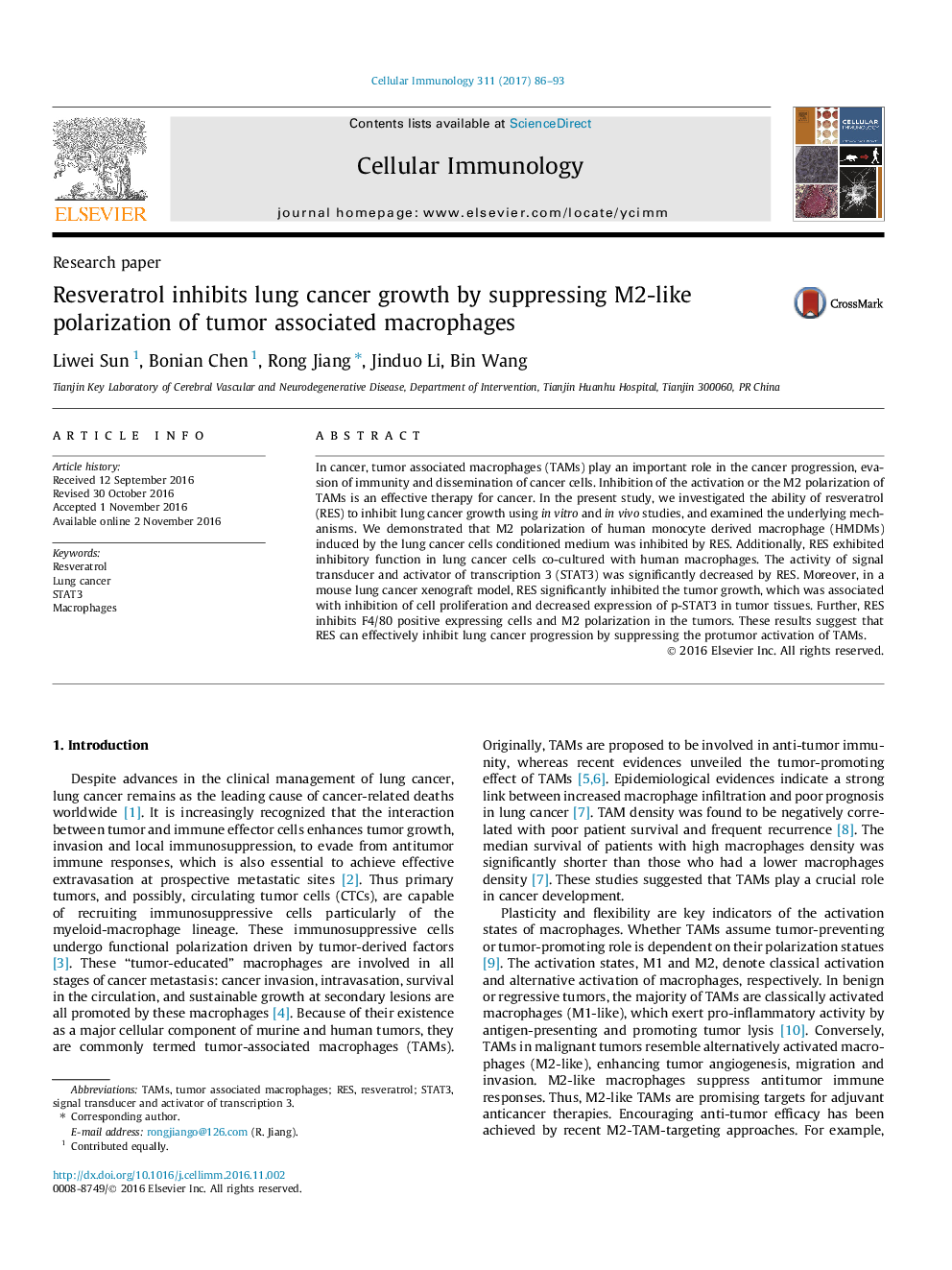| Article ID | Journal | Published Year | Pages | File Type |
|---|---|---|---|---|
| 5530754 | Cellular Immunology | 2017 | 8 Pages |
â¢M2 polarization of HMDMs induced by the lung cancer cells was inhibited by RES.â¢STAT3 activity was significantly decreased by RES.â¢RES significantly inhibits the tumor growth in mice.â¢The tumor inhibitory effects of RES were attenuated by macrophage depletion.â¢RES inhibits macrophage infiltration and M2 polarization in the tumors.
In cancer, tumor associated macrophages (TAMs) play an important role in the cancer progression, evasion of immunity and dissemination of cancer cells. Inhibition of the activation or the M2 polarization of TAMs is an effective therapy for cancer. In the present study, we investigated the ability of resveratrol (RES) to inhibit lung cancer growth using in vitro and in vivo studies, and examined the underlying mechanisms. We demonstrated that M2 polarization of human monocyte derived macrophage (HMDMs) induced by the lung cancer cells conditioned medium was inhibited by RES. Additionally, RES exhibited inhibitory function in lung cancer cells co-cultured with human macrophages. The activity of signal transducer and activator of transcription 3 (STAT3) was significantly decreased by RES. Moreover, in a mouse lung cancer xenograft model, RES significantly inhibited the tumor growth, which was associated with inhibition of cell proliferation and decreased expression of p-STAT3 in tumor tissues. Further, RES inhibits F4/80 positive expressing cells and M2 polarization in the tumors. These results suggest that RES can effectively inhibit lung cancer progression by suppressing the protumor activation of TAMs.
